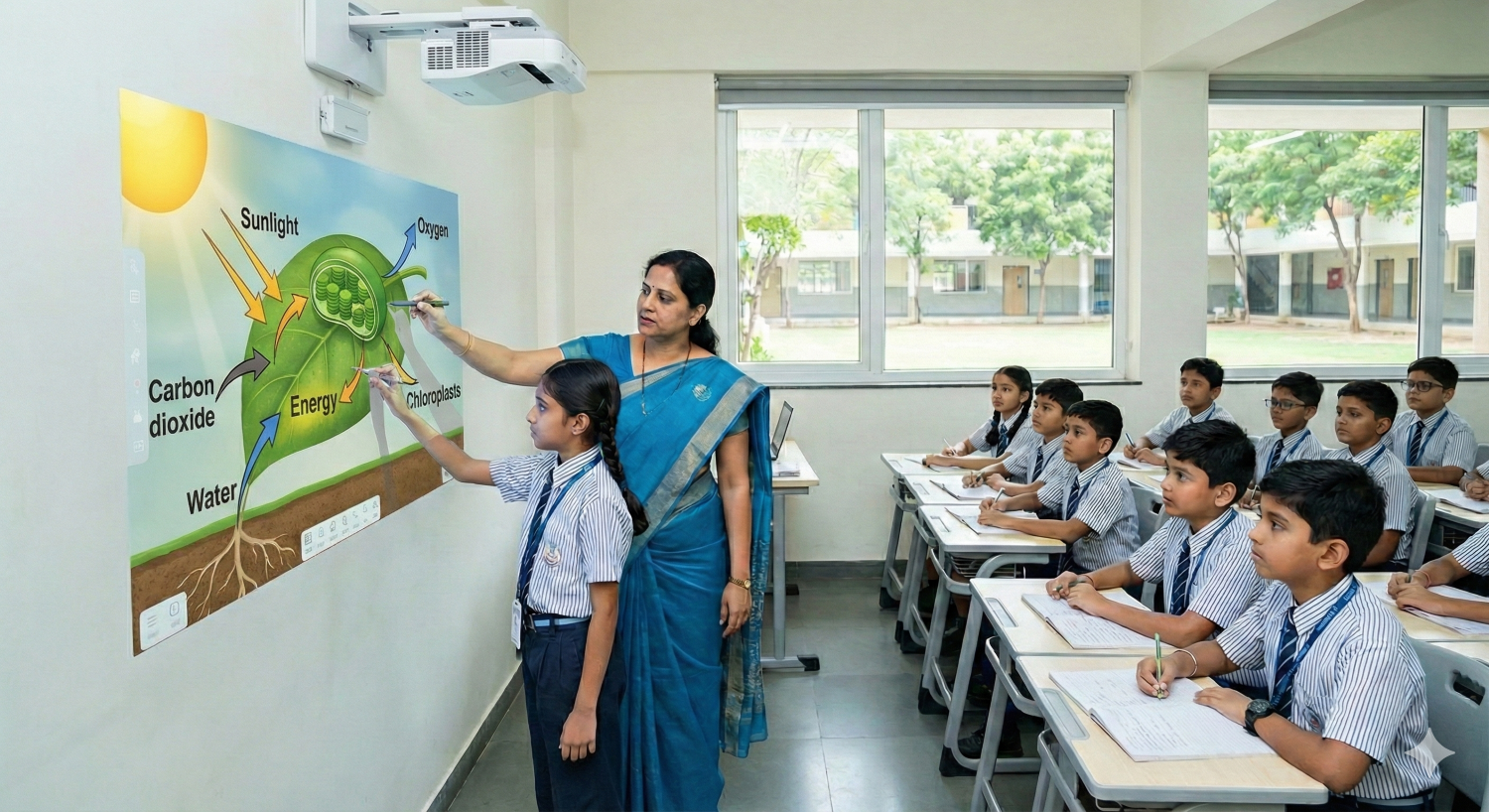The Benefits of Remedial Education in Science and Technology
.jpeg)
In the fast-evolving world of science and technology, students face increasing challenges in understanding complex concepts. For many, this complexity can lead to gaps in knowledge, low confidence, and even disinterest in STEM (Science, Technology, Engineering, Mathematics) subjects. This is where remedial classes come into play. Remedial education is a targeted approach that helps struggling students catch up and develop a strong foundation in subjects where they lag. In science and technology, these programs are especially crucial in ensuring that no student is left behind in a subject that is essential for the future workforce.

The Growing Need for Remedial Classes in Science and Technology
Remedial classes are designed to provide personalized assistance to students who may be struggling in particular subjects. In the case of science and technology, the fast pace of curriculum updates, paired with the increasing complexity of topics, means that students who fall behind often find it challenging to catch up without additional support. These remedial education programs focus on enhancing core concepts, improving problem-solving skills, and fostering confidence in students so they can excel in their studies.
The need for effective remedial classes in science and technology has become more apparent as the world leans more heavily on STEM subjects to fuel innovation. Teachers, principals, and school administrators are recognizing that traditional teaching methods may not be enough for all students. Tailoring education to fit the needs of every learner is key, and remedial teaching activities are an effective solution to bridge learning gaps.
The Importance of Remedial Education in Science and Technology
STEM subjects are notorious for their steep learning curves. Students often struggle with abstract concepts in mathematics, physics, chemistry, and computer science. Without a solid understanding of foundational concepts, they can quickly fall behind, leading to a cascading effect that affects their overall performance in school. Remedial education programs offer a solution to this challenge by providing a personalized learning approach that meets students where they are and helps them succeed.
Addressing Learning Gaps
One of the core objectives of remedial education is to identify the root causes of students' struggles and provide targeted support. In science and technology, these struggles often stem from an inability to grasp basic concepts, such as mathematical operations, logical reasoning, or scientific principles. Remedial programs work by slowing down the pace, breaking down complex ideas into smaller, more manageable parts, and providing additional practice. This not only helps students catch up but also builds a solid foundation that prepares them for more advanced topics.

Benefits for Students and Educators
From a student’s perspective, remedial classes offer a safe space to ask questions, revisit topics they did not understand, and engage with the material in a way that aligns with their learning style. For educators, these programs allow for more focused teaching. Instead of trying to cater to a wide range of learning speeds in a standard classroom, teachers in remedial settings can concentrate on specific areas of need for each student.
Additionally, with the integration of remedial teaching activities, educators can make these subjects more accessible and enjoyable, using practical experiments and hands-on projects to reinforce learning. This active engagement helps to demystify difficult concepts and make them more relatable, encouraging students to think critically and apply their knowledge in real-world situations.
Impact of Remedial Teaching Activities on Student Engagement
One of the most effective ways to improve student engagement in science and technology is through remedial teaching activities. Traditional lecture-based teaching may not always be sufficient, especially for students who are already struggling. Remedial programs, on the other hand, incorporate interactive and hands-on activities that not only reinforce learning but also make it fun and engaging.
Interactive Learning in Science
For instance, in subjects like biology, teachers can use real-life experiments to explain difficult concepts such as cell division, photosynthesis, or the periodic table. Students can participate in lab-based projects where they get to conduct experiments, observe outcomes, and discuss their findings. These practical experiences make theoretical concepts come to life, helping students understand and retain information more effectively.
Leveraging Technology in STEM Education
In technology and engineering subjects, remedial teaching activities can involve the use of digital tools like coding software, interactive simulations, or virtual labs. By engaging with technology-based learning tools, students can learn at their own pace, repeat lessons as needed, and apply their newfound skills in real-world scenarios. This is particularly useful in computer science, where coding exercises, algorithm building, and problem-solving are integral to the learning process.
Furthermore, collaborative activities, such as group problem-solving or team-based projects, can promote peer learning, where students learn from one another in a more relaxed, informal setting. This collaborative environment encourages students to engage more deeply with the subject matter, fostering creativity and innovation.
Remedial Education Program Benefits for Teachers and Educators
Remedial education doesn’t just benefit students—it also provides educators with the tools they need to become more effective in the classroom. With the growing adoption of digital classrooms and hybrid learning solutions, such as Roombr’s technology, teachers can now integrate remedial teaching activities more seamlessly into their lesson plans.

Personalized Learning for Every Student
One of the main benefits for teachers is the ability to deliver personalized education. In a traditional classroom, it can be difficult to address the individual needs of each student, especially when the class size is large. However, with the help of remedial programs and digital tools, teachers can assess each student’s strengths and weaknesses, develop customized lesson plans, and monitor progress over time.
Technology as an Aid in Remedial Teaching
Digital classrooms, like those offered by Roombr, provide educators with the resources they need to create engaging and interactive remedial teaching activities. Interactive projectors, virtual labs, and AI-powered assessments can help teachers identify learning gaps early on and intervene with targeted support. This not only reduces the burden on educators but also ensures that students receive the help they need when they need it.
Moreover, with hybrid classrooms, teachers can combine face-to-face instruction with online learning, making remedial education more flexible and accessible for all students. Whether students are learning from home or attending school, they can access the resources they need to succeed in science and technology subjects.
Conclusion
As science and technology continue to shape the future, it is essential to equip students with the skills and knowledge they need to thrive in these fields. Remedial classes provide a lifeline for students who struggle to keep up with the demanding pace of STEM subjects, offering them a second chance to succeed. Investing in remedial education programs is not just a short-term solution for addressing learning gaps—it is a long-term investment in the future of our students and our education system. By incorporating remedial teaching activities and leveraging technology, schools can ensure that every student has the opportunity to excel in science and technology, regardless of their starting point.
Schools and institutions looking to stay ahead should consider integrating remedial classes into their curriculum for science and technology subjects. Not only will this improve student performance, but it will also prepare them for a future where STEM knowledge is more important than ever.
FAQs
1. What are remedial classes?
Remedial classes are specialized learning sessions designed to help students who are struggling with particular subjects, such as science and technology, catch up and improve their understanding of key concepts.
2. How do remedial education programs help in STEM subjects?
Remedial education programs in STEM subjects offer personalized teaching approaches that address individual learning gaps, allowing students to master difficult concepts at their own pace.
3. What are some effective remedial teaching activities for science and technology?
Effective remedial teaching activities in science and technology include hands-on experiments, interactive simulations, and collaborative problem-solving projects that engage students in active learning. By recognizing the value of remedial education and taking proactive steps to implement it, educators can transform how students engage with science and technology, ensuring a brighter future for all.
Praveen Krishnaiah
Share
Step Into the future of
Education with Roombr


















